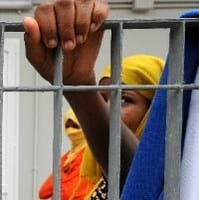(BRUSSELS) – Self-reliance and dignity are the themes of a new approach set out by the European Commission on Tuesday for refugees and displaced people coming to the EU.
The aim of the approach, outlined in the Communication “Lives in Dignity: from Aiddependence to Self-reliance”, is to prevent refugees and displaced people relying only on emergency humanitarian type assistance. It looks at ways to help them become more self-reliant in the countries where they reside.
The proposal comes as the Syrian refugee crisis enters its sixth year, while worldwide, more than 60 million people have been displaced from their homes, sometimes for decades on end.
Refugees and displaced people need “long-term perspectives and hope for the future”, said Christos Stylianides, the EU’s Commissioner for Humanitarian Aid. “Humanitarian aid can save lives and provide basic essentials, but it’s not a long term solution. We must take steps to end long-term dependence on emergency assistance and help people become more self-reliant and resilient, with access to education and livelihood. Refugees need to be given greater opportunities to realise their full potential for their own futures and for the welfare of their host societies.”
The policy framework highlighted in the new Communication is to form a major part of the EU’s contribution to the World Humanitarian Summit (WHS) on 23-24 May 2016 and contribute to the implementation of the Sustainable Development Goals.
Background
Nearly 80 million people are in need of humanitarian assistance because of conflicts, natural disasters, and social and economic fragility. With more than 60 million refugees and internally displaced persons (IDPs), the world today faces the highest scale of forced displacement since the Second World War. The unprecedented scale of humanitarian need as a result of this trend has become more and more difficult to match the limited financial resources available to donors.
The consequences of protracted forced displacement on both the forcibly displaced and host populations can be highly detrimental. Refugees and IDPs can often be perceived as a burden and their socio-economic and human potential is lost or their positive contributions are not recognised and/or maximised.
Further information
COMMUNICATION FROM THE COMMISSION TO THE EUROPEAN PARLIAMENT, THE COUNCIL, THE EUROPEAN ECONOMIC AND SOCIAL COMMITTEE AND THE COMMITTEE OF THE REGIONS


